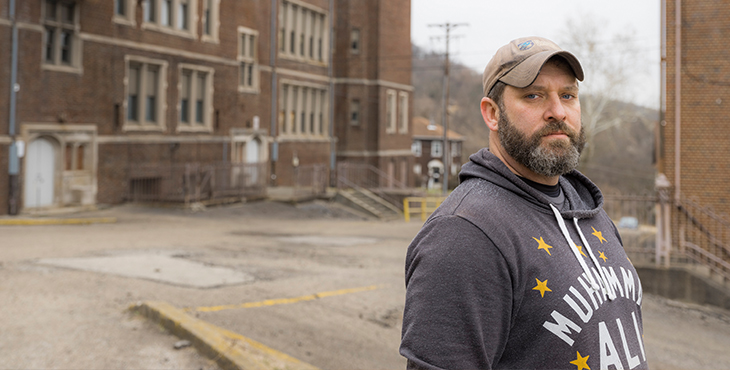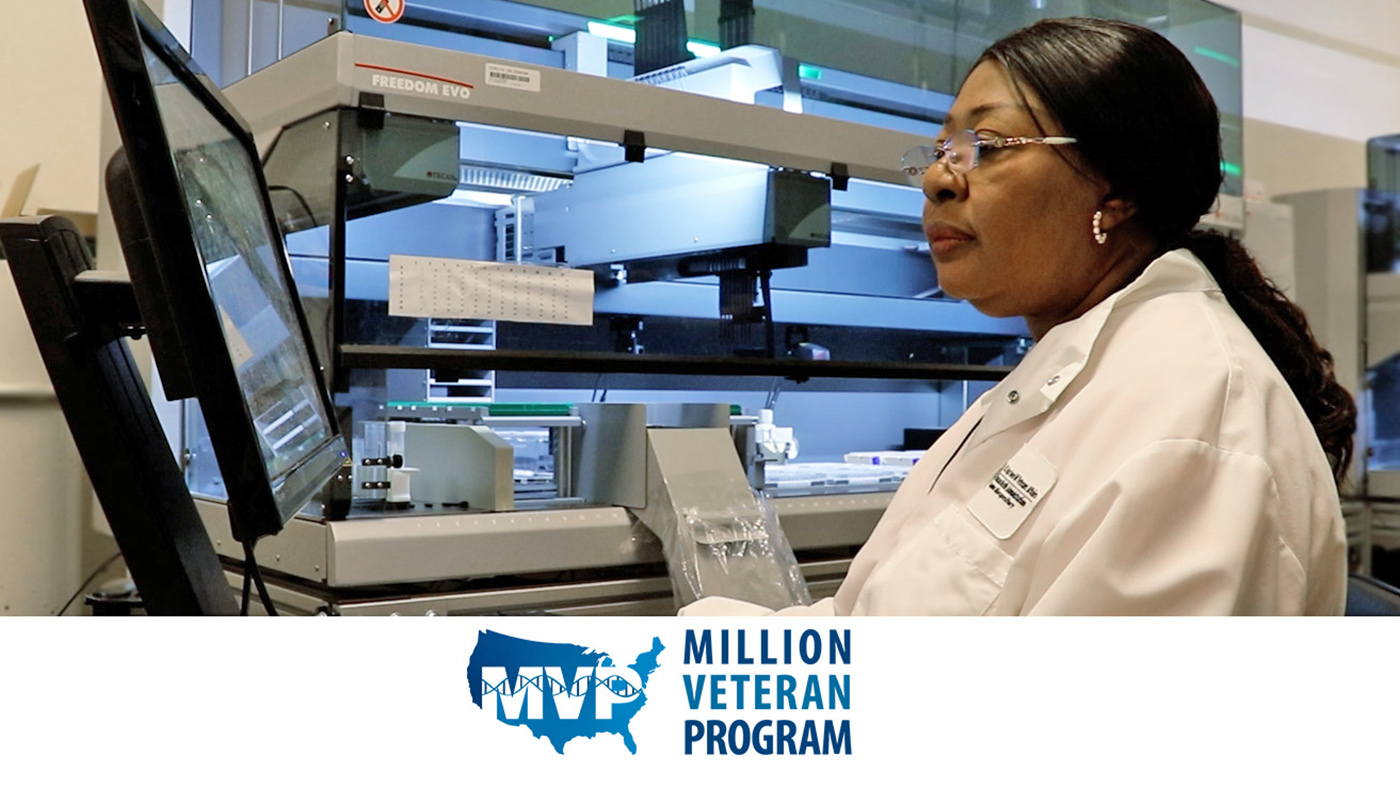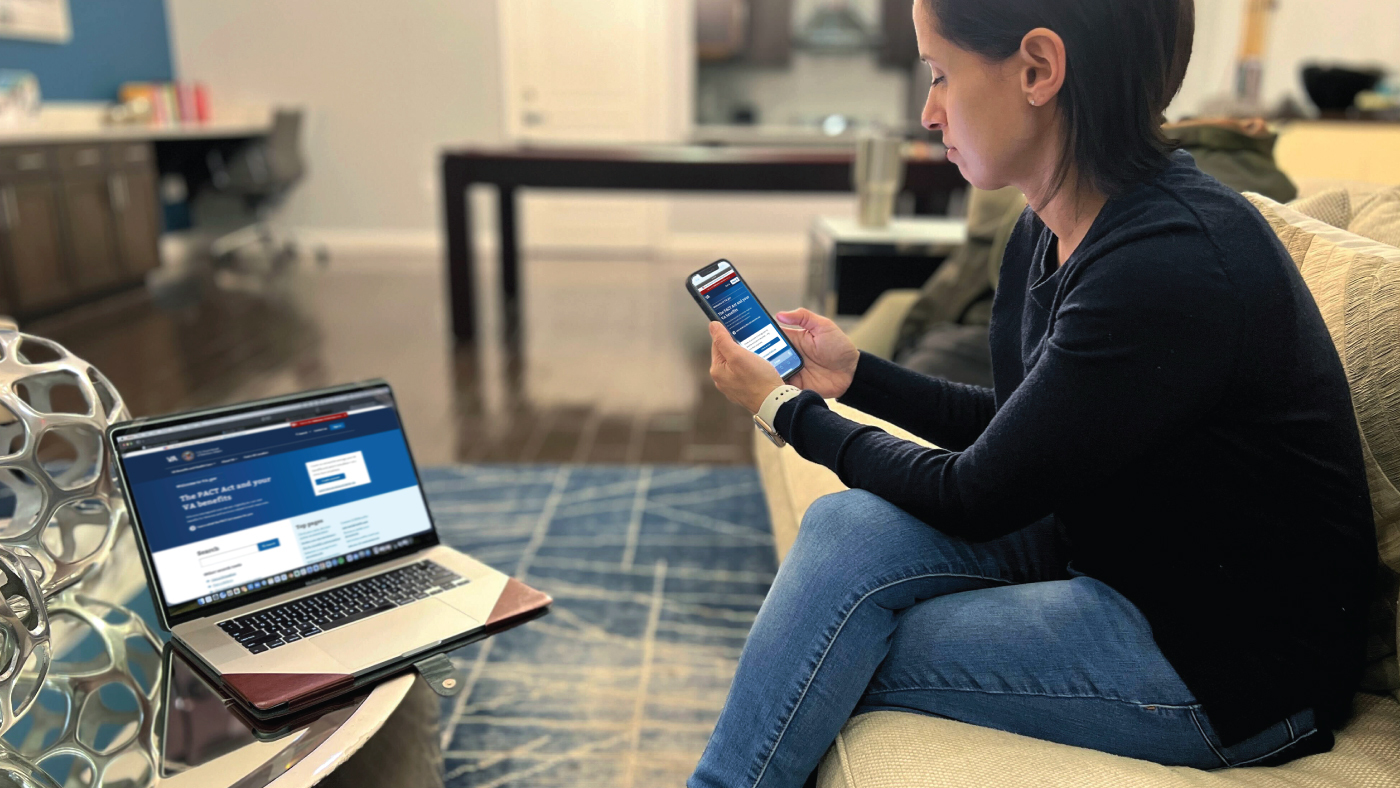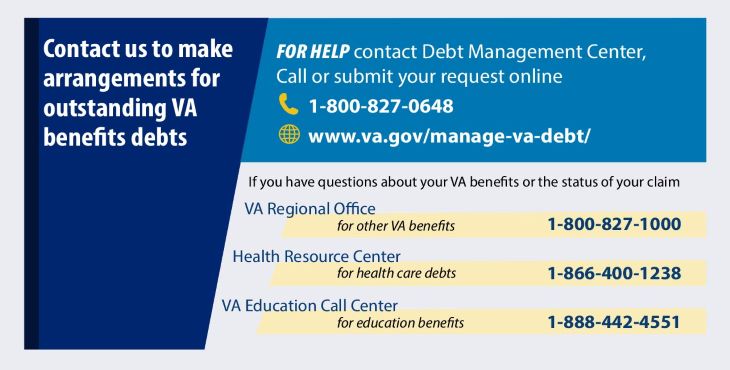Matt Landis, pictured above, is man with a passion for service. The Army Veteran is a computer engineer at the Human Engineering Research Laboratories (HERL), a joint project between the VA Pittsburgh Healthcare System and the University of Pittsburgh. He and the HERL staff work to create wheelchair technologies, advanced prostheses, and other innovative systems that improve the quality of life for people with disabilities like lost limbs and spinal injuries.
“I can see the impact of thoughtful, well-designed technologies on disabled people. … I can see directly how life-changing these innovations can be, and that everything we do can potentially increase a person’s freedom.”
Landis was originally recruited to participate in HERL’s ELeVATE program, which is designed to re-integrate Veterans into college. He graduated from the University of Pittsburgh with a degree in electrical engineering in 2016, after which he became a full-time employee at HERL. He served two tours in Iraq as an Apache helicopter pilot and earned many honors, most notably the Army Commendation Medal. He’s been featured in the Google video series Living to Serve .
What motivated you to join the military?
I actually joined twice. The first time, the motivation was purely machismo. The captain of the rugby team I played for at the time was a former special forces medic. I wanted to be just that. I wanted to be as tough and able as he always seemed, and he encouraged me to pursue that path. Ultimately, I didn’t follow in his footsteps and made my own way.
What inspired your research career?
It was purely because of my son. All three of my children are on the autism spectrum. But my middle child is severe and non-verbal at 15 years old. Ever since he was young, we’ve had to innovate to communicate with him. With my technical background, I’ve been researching methods for facilitating communication and exploration with him since he was diagnosed. When I heard there was a specific field for this, termed rehabilitation science and technology, or rehab engineering, I immediately began searching for a program. The first name that came up was Dr. Rory Cooper, the director of HERL and my mentor. Once I saw the work he was doing, I knew where I needed to be.
Have you had mentors who you’ve looked up to in life, the military, or your research career?
Absolutely. I think everything I am is built on my ideas about and the study of certain people, both historical and contemporary. Chief among them are Robert Kennedy and Muhammad Ali. They’re both fighters who spent their lives growing, changing, and becoming better people, all through the most difficult circumstances imaginable. I lost my parents and grandparents when I was young and had a brother murdered. So I’ve always looked at those men as models for how I can fight through and do good. In my military years, I always had at least one mentor that helped me grow and learn. Officers Dennis Yates and Kenneth Royar were two of the most impactful. I worked directly under each one and learned a leadership style from them that I try to emulate. They were patient, thoughtful men who embodied the essence of servant-leaders. They were the first real-life warrior poets I would meet. I’ve tried to walk in their steps ever since. In my research career, Dr. Cooper stands alone. He’s a generational luminary, the kind of man that you can’t stand next to without being better and doing better. He takes away every excuse you make for yourself in life just from the example he sets.
When and where did you serve in the military? Describe your military experience.
I joined the Army as a forward observer in 1999 and served with the 187th Infantry Regiment at Fort Campbell in Kentucky until 2002. Just before 9-11, I was selected for warrant officer candidate school (WOCS) and left in January 2002 for Fort Rucker in Alabama. There, I would complete WOCS and flight school, graduating as an AH-64D Apache Longbow pilot. I was assigned to the 11th Aviation Regiment in Illesheim, Germany in 2003. I joined that unit in Iraq in June 2003 as an Apache helicopter pilot and remained with it until February 2004. After a promotion to chief warrant officer and a transfer to the 3d Armored Cavalry Regiment, I was sent to Fort Hood in Texas in 2006. I served the rest of my career in that unit, deploying to Iraq from 2007 to 2009 as part of the Iraq war surge efforts at the time. I left the military shortly after redeployment in July 2009.
What kinds of research are you involved in? How does it potentially impact Veterans?
We develop technologies at HERL that improve the quality of life and independence for those with disabilities. Much of the lab’s early work focused on wheelchair technologies and adaptive sports technologies. While we continue to lead academic exploration in those areas, we also have projects dedicated to advanced prostheses, robotics, and adaptive communications. We also are working on projects that may advance detection and treatment of PTSD-driven episodes in real time. All of those are applicable in the Veteran space and contribute to Veteran health and well-being.
You say, “I realize service doesn’t end when you get out of the military. It just changes.” Please elaborate on that comment.
Service is a pretty nebulous concept. I always considered my mother’s work as a nurse as service. I think the same of teachers, social workers, and increasingly, coaches and non-profit leaders. I heard recently from the imam of a local mosque that service is the act of enduring some hardship or sacrifice for the love of something greater. That’s the best definition I’ve heard for service, which can take a lot of shapes. Military service was my way of squaring up with the nation for taking care of me as a child, educating me, and giving me a safe and stable environment in which to grow. Now, I see things that need to be done in my community, and I believe I have something to offer in progressing toward solutions. I’m obligated to serve in my community as a way of paying my rent in the city of Pittsburgh, which is educating my children and giving all of us a safe, stable place to grow.
Read Landis’ full interview and interviews with other Researchers Who Served.
Topics in this story
More Stories
The findings of this new MVP study underscore the importance and positive impact of diverse representation in genetic research, paving the way for significant advances in health care tailored to Veteran population-specific needs.
VA reduces complexity for Veterans, beneficiaries, and caregivers signing in to VA.gov, VA’s official mobile app, and other VA online services while continuing to secure Veteran data.
VA has resources available to ensure natural disasters do not make the already challenging situation of owing a VA debt worse. If you are experiencing financial hardship and are unable to repay your VA debt because of a natural disaster, relief options are available.






